Student Support at The Manoogian School
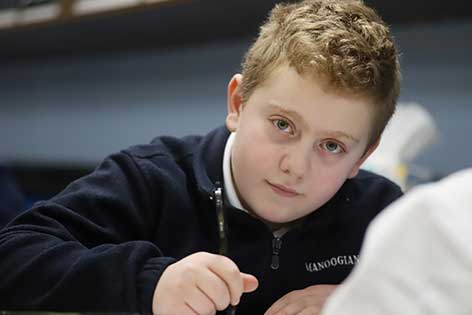
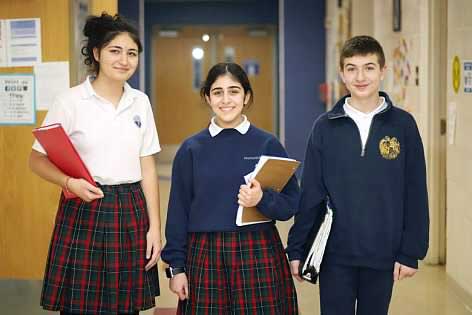
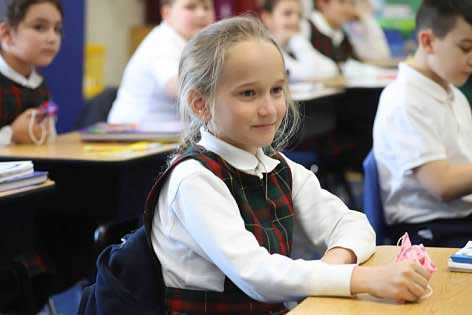
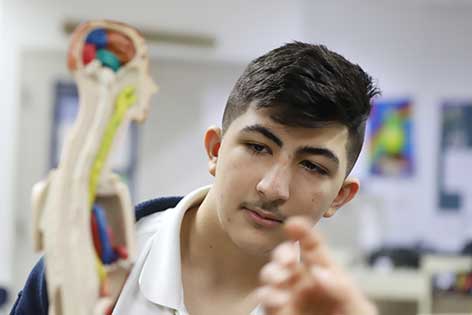
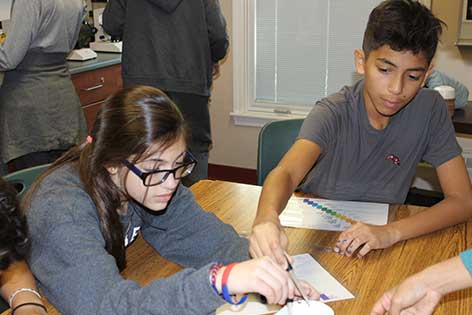
At The Manoogian School, our students receive several types of support beyond the classroom, including student activities and events hosted by our PTO, English language support for students who don’t yet speak fluent English, social-emotional learning support through our counseling program, and special education services, among other initiatives meant to support the whole child.
The Manoogian School Parent Teacher Organization (PTO)
The Parent Teacher Organization (PTO) is an active community of committed parents who are dedicated to serve the students and school community. The Manoogian School PTO promotes parental support for the students and help raise funds for various educational programs and operational expenses. We are proud of the support that the PTO provides our leaning community and we encourage our parents to get involved.
The PTO meets monthly, starting with a “Welcome Back” meeting in September, where all parents are invited. Every fall, each family receives a PTO packet which includes a list of potential activities and fundraisers for the entire school year. In addition, parents typically select two activities to volunteer. Then, as the event approaches, the PTO member chairing the event will contact them to share how they can help.
If you would like to share fundraising ideas or family activities for the school, please contact:
Greg Karapetian gskarapetian@manoogian.org or Lisa Shekerdemian lshekerdemian@manoogian.org
Our Parent Teacher Organization
Greg Karapetian
Co-President
Dawn Akrawi
Co-President
Lisa Shekerdemian
Co-Vice President
Dzovinar Hamakorzian Co-Vice President
Haigan Ferhadson
Treasurer
Nayiri Karapetian
Secretary
Thunder Aziz
Hospitality Committee
Anahit Dilakian Advisor
Chaghig Manoukian
Advisor
Sonia Kalfayan
Faculty Advisor
Lunches and Latchkey
We now offer a hot and cold lunch program through Ordo.com. Students place their lunch orders by Sunday midnight for the following week of food service, and parents pay at the time of order by credit card. This program is offered Monday through Thursday.
English as a Second Language (ESL)
The A.G.B.U. Manoogian School excels at serving students for whom English is a second language. As it stands today, the majority of our English Language Learners (ESL) have a Ukrainian background.
The school has invested a significant amount of resources in order to provide a robust ESL program that empowers newcomers to master English in as little time as possible.
Upon arrival, our students take the English Competency Test (WIDA) that determines their proficiency level so they can be placed in an ESL class that best suits their unique needs.
The main emphasis of the ESL program is to facilitate and expedite the process of learning English by providing all necessary support, so the students can function in their mainstream classes.
Alongside the educational component, the Manoogian School fosters a comfortable and non-threatening atmosphere to make it easier for students to thrive socially and academically.
Through constant communication with our students’ parents, we ensure their child’s everyday needs are met, and any issues that may arise are managed swiftly. This effective communication is possible because A.G.B.U. Manoogian’s ESL teacher speaks the students’ native language and acts as a liaison between students, parents, and the school.
Social-Emotional Learning (SEL) Support
At the Manoogian School, the needs of our students, are met academically but also socially and emotionally. SEL is an educational practice that integrates social and emotional skills into a school curriculum. It helps students of all ages to better comprehend their emotions, to feel those emotions fully, and demonstrate empathy for others. Our SEL Program includes:
- Elementary classroom visits by the counselor 5 to 6 times a year, discussing topics including bullying, being a good friend, the ‘bucket-filler” concept, and conflict resolution
- Individual social/emotional/academic counseling is available to all students in grades K-12
- In fourth and fifth grades, students can become members of the “Kindness Club,” where members do something kind for students and staff monthly throughout the school year
- Counselor visits weekly during 10-week mini-courses in middle school, covering topics including bullying, inclusion, conflict resolution, and career preparation
- Individual meetings with high school students yearly to address academic and social-emotional concerns
- We participate in “Stand for Change” Day in May, an annual event focused on preventing bullying
Since the pandemic has added to the stressors in all of our lives, our counselor has created a calming area in her office, which includes calming jars, stress balls, pop-its, Play-Doh, a coloring area, and a tea station. There is also softer lighting in the room when needed. This safe space allows students to decompress and diffuse emotions in a healthy way.
Our counseling program also consults with outside mental health and social support agencies, many of which have visited the school for presentations. Organizations include Common Ground, Ok2Say, NAMI (National Alliance on Mental Illness) MINDS program for our high school students, and the ReNEWed stress/anxiety program for our middle school students.
Special Education
Our Special Education Program
The AGBU Alex and Marie Manoogian School strives to meet the needs of each and every learner. Our Special Education staff is committed to working with students and providing the necessary resources for their success.
Each local education agency and public school academy in Michigan is required to publicly post the process used to determine the existence of a Specific Learning Disability.(SLD). Each must also implement the requirements of both the Individuals with Disabilities Education Act (IDEA) and the Michigan Administrative Rules requirements for Special Education (MARSE). Consistent with this requirement, AGBU Alex and Marie Manoogian School presents the following:
For determinations of an SLD, a Pattern of Strengths and Weaknesses (PSW) is used for students in kindergarten through 12th grade across all areas including oral expression, listening comprehension, written expression, reading comprehension, reading fluency, math calculation, and math problem-solving. It is noted that regardless of the process used, all schools must follow all of the regulatory requirements in the IDEA, the MARSE, and Michigan laws, policies, and procedures for special education.
The Resource Room
The Resource Room is a special education program for students with a disability who are registered in either a special class or regular education while in need of specialized supplementary instruction in an individual or small group setting for part of the day. This allows the teacher to focus on deficit skill development within the framework of curricular needs at each grade level.
Hours in the Resource Rooms are determined by the student’s IEP (Individual Education Plan). The Resource Room program includes remedial, compensatory and developmental Instruction, which is provided in small groups for usually three to five hours per week based on the IEP. We also provide support and accommodations on all tests (state and district). Our students have a lot of benefits and opportunities to help the student to be successful in society. Academic Success is the Key.
What is an SLD?
A Specific Learning Disability is “a disorder in one or more of the basic psychological processes involved in understanding or in using language, spoken or written, that may manifest itself in the imperfect ability to listen, think, speak, read, write, spell, or do mathematical calculations, including conditions such as perceptual disabilities, brain injury, minimal brain dysfunction, dyslexia, and development aphasia that adversely affects a student’s educational performance. An SLD does not include learning problems that are primarily the result of visual, hearing, or motor disabilities; mental retardation; emotional disturbance; or of environmental, cultural, or economic disadvantage.” (34 CFR 300.8(c)(10)).
What is a PSW Process?
Pattern of Strengths and Weaknesses is a process that is used to determine if a student has an SLD. This process involves the collection of data to determine the following:
- The student does not achieve adequately for the student’s age or to meet State-approved grade-level standards in one or more of the areas identified at 34 CFR 300.309(a)(l)(i) when provided with learning experiences and instruction appropriate for the student’s age or State-approved grade-level standards.
- The student exhibits a pattern of strengths and weaknesses in performance, achievement, or both, relative to age, State-approved grade-level standards, or intellectual development. This is determined by the Multidisciplinary Evaluation Team (MET) to be relevant to the identification of an SLD, using appropriate assessments, consistent with the IDEA Evaluation Procedures and Additional Requirements for Evaluations and Re-evaluations.
